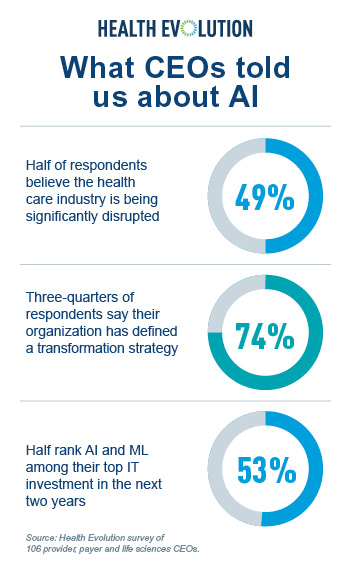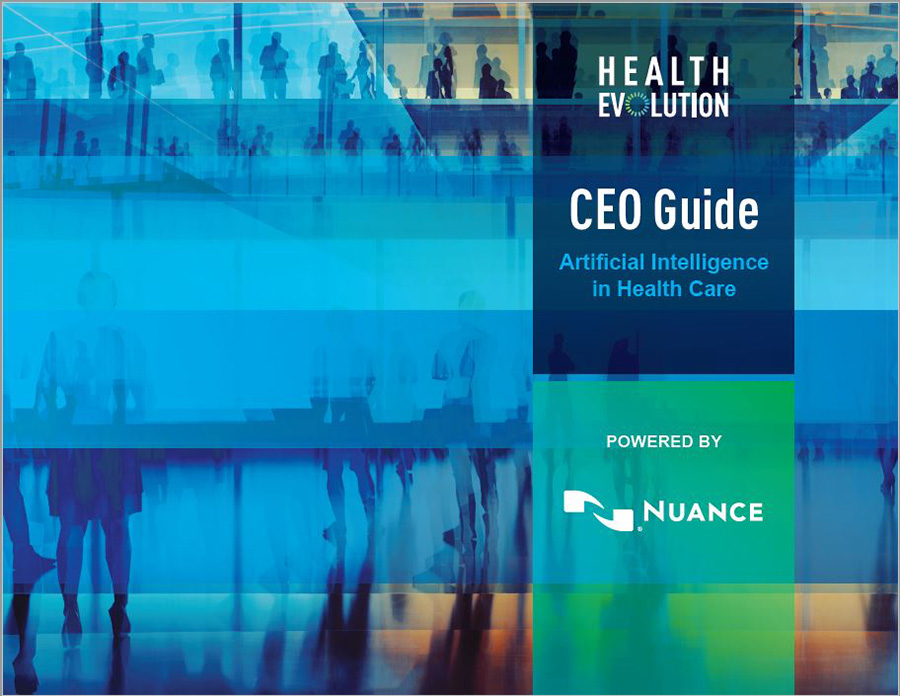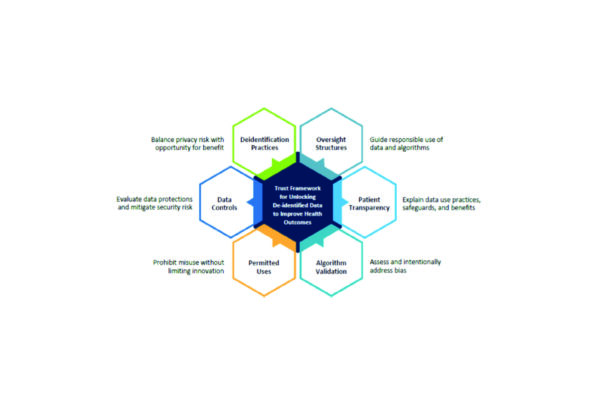The Health Evolution CEO Guide to Artificial Intelligence in Health Care enables executives to understand how to navigate the unknown capability of AI as well as the potential disruption, challenges and opportunities.
Leveraging AI requires that CEOs enact a long-term strategic approach involving:
- Change management. CEOs will have to lead culture change that includes managing resistance and engaging all relevant constituents to improve organizational performance.
- Information technology. Few IT departments are truly prepared for AI, and much of the work will fall to IT, so CEOs must consider upskilling, modernizing architecture, establishing new practices, and more.
- Partnerships. Innovators’ need for real health data to feed AI models represents new manner negotiating power for providers but CEOs need to be appropriately selective when entering partnerships.
- Legal. AI “black box” and changing algorithms make it critical for health care organizations to strengthen their ability to assess liabilities as they have for diagnostic and therapeutic technologies.
- Regulatory & compliance. Legacy compliance functions will need new capabilities to ensure federal and state regulations are not violated because of need to be updated for complex issues arising from AI and the accompanying growth of data.
- Privacy & ethics. Securing sensitive information and protecting privacy for patients are top priorities in any AI endeavor and executives will need to anticipate ethical considerations, such as bias embedded in AI models that can affect care.
The Health Evolution CEO Guide to Artificial Intelligence in Health Care is designed to inform CEOs in preparation for making critical decisions determining where AI fits into the organization’s digital transformation, broader mission and enterprise strategy.
Complete the form below to receive the CEO Guide to Artificial Intelligence in Health Care











